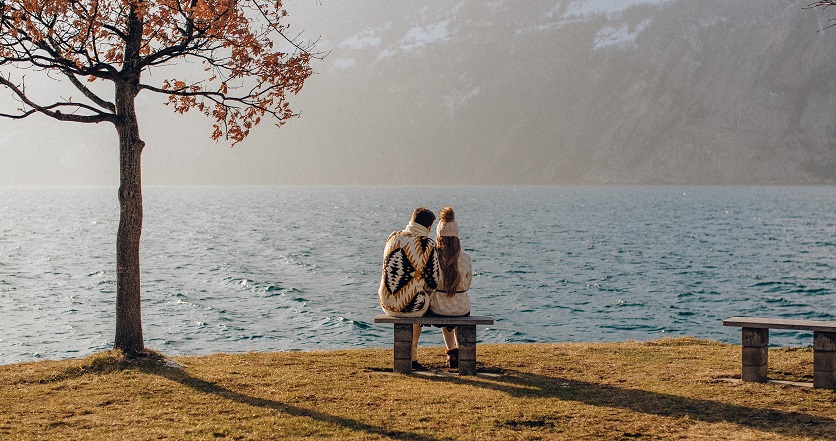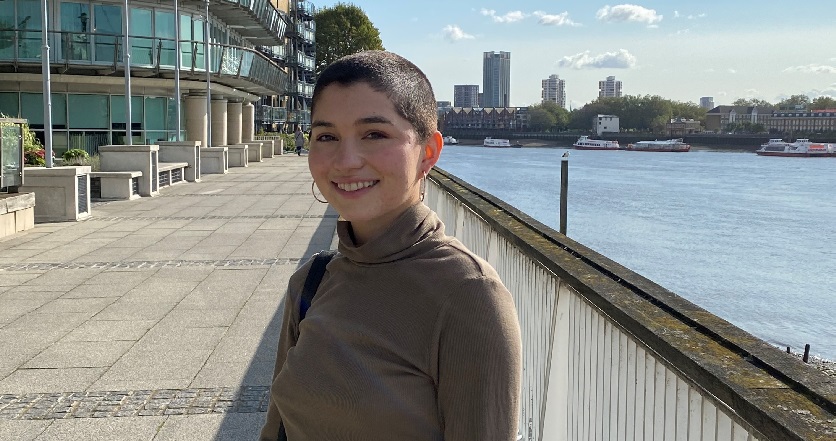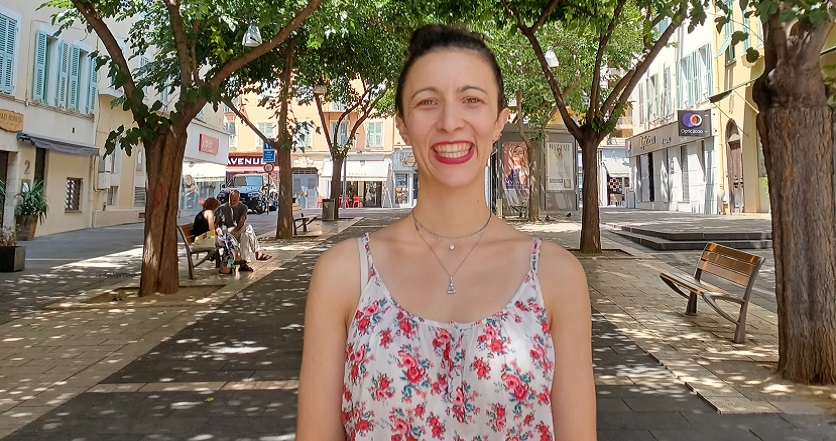Buddhism, Fears and Dreams: An Intergenerational Dialogue
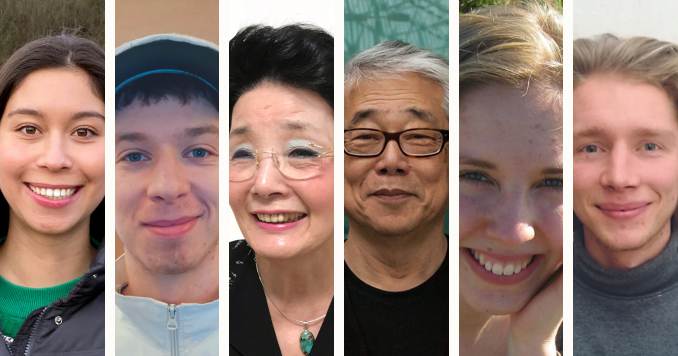
Youth members of the Soka Gakkai organization in Germany speak with long-time practitioners of Nichiren Buddhism Kimiko Brummer and Yoshi Matsuno about the Buddhist perspective on the topic of pursuing dreams and facing fears.
Marina Andreae: My dream is to become a doctor. However, when I think of the responsibility, the mistakes that can happen and what I have to do, I’m often afraid I won’t make it or won’t be up to the task. How can I deal with that?
Yoshi: First of all, I think it is absolutely normal to be afraid of something new. Even though I am 74 years old, I am also not free of fear. That’s why I can understand that you—as a member of the younger generation with a lot ahead of you—have even more fears. No one knows what’s coming next. But one thing is “dead certain”: that we will die at some point. Buddhism prepares us for this and other decisive moments of life, which can arrive at any time.
Fortunately, we have come to embrace Nam-myoho-renge-kyo, the ultimate law of life and the universe, which encompasses both life and death. Therefore, we can say, “I already have the most important thing. No matter what may come, I accept the challenge and learn from it. I am gathering experiences in this life for the next or the one after next.” Viewing it that way gives you a different perspective.
In the end, faith is about understanding oneself: Who am I? What is life? How do I want to live? These questions are the starting point.
It would be a pity if you do not realize your professional vision or even your purpose in life because of your fears. Really, you can do anything you would like to do, and in the end, you are always a winner because you have the transformative practice of chanting Nam-myoho-renge-kyo. So, please don’t be afraid. Courage, courage and again courage. That’s my recommendation.
Kimiko: I also belong to Yoshi’s generation. It is really a pleasure speaking with you young people. Each of us has his or her own hopes and dreams. But because not everything goes smoothly in life, we need courage. It is really a pity when we cannot recognize our own value and do not lead a self-confident life. Because if you are able to believe in your possibilities and in your own potential, you can create enormous value with your life.
In the end, faith is about understanding oneself: Who am I? What is life? How do I want to live? These questions are the starting point. Faith is the starting point. Buddhism encourages us to set out and to find answers to these questions. We have to walk the path by ourselves, though. We shouldn’t put other people, our environment or certain circumstances at the very center of our lives. Leave behind doubt. Live according to your clear determination and pursue your dreams. Stay true to yourself! The courage to do so resides within. We have only to bring this courage out from the depths of our being into the light of day. This is what Buddhist practice is for.
Overcoming Fear
Louis Funke: From a Buddhist perspective is fear basically something negative? Are dreams always something positive in our lives?
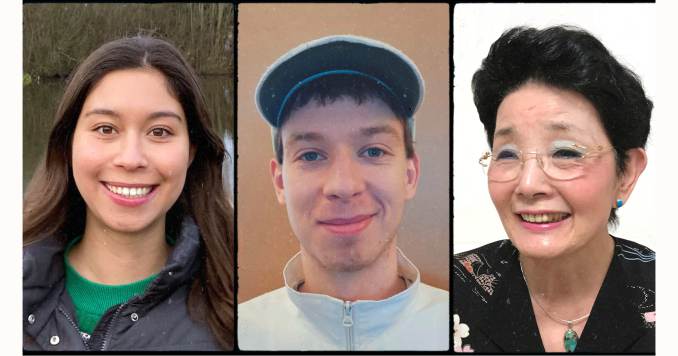
Kimiko: We all have fears, as Yoshi said. Giving up a dream for fear of failure is the worst mistake a young person can make. The past is gone, and the future is not yet here. Keep moving, focus on what is in front of you and keep telling yourself, “Today, I start. I begin from this very moment.”
The important thing is to take the first step. Once you have done that, it will give you courage to take the next step. Dreams are always something positive if you have the attitude, “I will begin making them a reality now, in this very moment.”
Yoshi: This is a very important question. No matter how small or big your dreams are, the worst thing is to be paralyzed by fear.
No matter what problems come, we have the greatest power there is—the power that comes from chanting Nam-myoho-renge-kyo, which activates our inherent Buddha nature. But this power is useful only when we use it. Nichiren showed us that as human beings we have the capacity to overcome all kinds of problems. That’s why I wish youth to have firm faith and strong conviction. When we overcome difficulties with faith and accumulate experiences, we realize that the power of the Buddha is within us. This power can make the impossible possible.
When we attempt only what we believe is possible and never confront our fear, where is the development of humanity then? We must dare to attempt something new, something that has not yet been attempted. Such courageous steps are what lead to development.
The Need to Dream
Anna Corbioli: How do I know if my dreams are good for me?
Yoshi: Having dreams is precious. Even at my age, I still have dreams. If you are without a dream, you are without hope. Regardless of whether or not your dream becomes a reality, you should have dreams. And to realize your dream, you need concrete goals as well. From this perspective, a life without a dream is actually a form of bureaucracy in which you only try to make ends meet until you retire. But with our Buddhist practice, we can realize so much more.
When we attempt only what we believe is possible and never confront our fear, where is the development of humanity then?
When we have dreams—big or small—and start taking concrete steps toward them, our capacity develops, and we can discover unimagined abilities. Negative experiences and old thought patterns like, “I am not able to do this; this is impossible,” fade and something within us that has always existed but has been long forgotten is revived.
Kimiko: Dreams are an expression of our heart’s deepest desires. Taking the first step toward the realization of our dreams is what’s important. Martin Luther King once said: “You don’t have to see the whole staircase, just take the first step.”
When we stand still, we see things only from one perspective, but when we begin to move and keep moving, we see many new aspects, the way opens up, and we can tell more clearly if our dream is good for us or not. We may not see results right away. And, naturally, we don’t always get exactly the results we expected. However, if we don’t take a step, we won’t experience any result and will never reach our goal.
It is important to see one’s own resolve as the cause—as a seed we sow. A seed in the soil can’t be seen, but at some point, we see a small young shoot breaking through the soil. On this shoot, leaves grow, later on branches develop, and with time, a big tree matures. If you have great resolve and patience, the seed will develop into a big tree. You shouldn’t wait for seeds to sow themselves. Now is the time for you to sow those seeds.
President Ikeda once attended a meeting of the Soka Gakkai writers’ group in Japan. When he asked one of the participants what he did professionally, the participant replied that he didn’t feel like a good author since he wrote only cheap erotic novels. People around him often criticized him for writing such “trashy novels.” Saying that he couldn’t do any better, he asked President Ikeda what he should do. President Ikeda encouraged him to write as many cheap novels as he could!
I got to know this gentleman later on in the course of my work for the Ushio publishing company, and he told me that he took this encouragement with his whole heart and put it into practice. He wrote and wrote and, after he had written countless cheap novels, the day came when he got tired of it. He couldn’t write another one. He just got sick of it and wanted to do something else.
So, he began to write a “real” novel and had great success with it. He shared this experience with me and said, “I am so grateful for President Ikeda encouraging me to just keep going. Through this, I was able to find my purpose and could unfold my full potential.” That’s how it is. So, just keep on moving forward.
The Importance of One Person
Julius Schuster: I am afraid that we human beings are destroying our existence on planet Earth, and I often feel very powerless. I see this danger though I may also not always act sustainably. Why do we destroy ourselves?
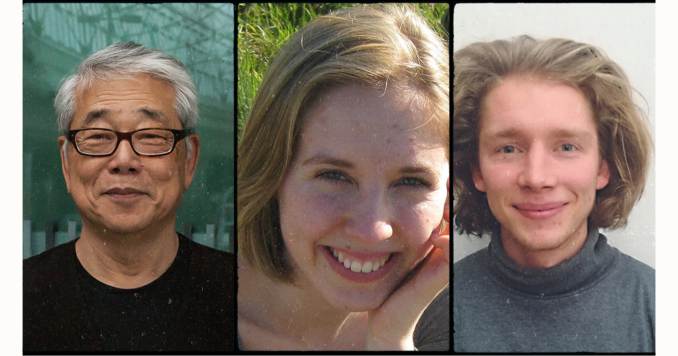
Kimiko: I happened to read an article about the mountaineer Ken Noguchi recently. He performed poorly at school and had to leave school without being able to graduate. One day, he came across a book about a famous mountaineer, and it inspired him to want to create some value in life. As a result, he resolved to also climb a high mountain. He succeeded in climbing Mount Everest at the age of 25, becoming the youngest person at the time to complete the Seven Summits—a quest to scale the highest mountain of each continent. This made him very famous. However, his local mountain guide, a Sherpa, didn’t get any recognition, even though he had risked his life to support and protect Noguchi.
The Sherpa are an ethnic group native to the most mountainous regions of Nepal. They are impoverished and unfortunately have only limited opportunities for receiving a good school education. Out of gratitude to his mountain guide, Noguchi created a fund for orphaned Sherpa children. In a Nepalese village, he asked the children what their dreams were. The interpreter said that the children in this village didn’t have dreams, because they didn’t know anything about the world and there were no books, TV or electricity.
Noguchi built a school there, and the atmosphere in the village changed. After a couple of years, he visited the village again and asked the children again what their dreams were. Now they had dreams and replied, saying things like, “I would like to become a teacher,” “I would like to become a pilot.”
He also noticed that the mountains were strewn with litter, so he organized a group of mountaineers and together they collected the litter. At first, people laughed at him, saying it was impossible to clean up all the litter. However, little by little, his initiative came to fruition.
He said that we may start something and take five steps forward. But then, it could be that we have to take four steps back. However, once we have started to walk, we never have to go back all the way. The one step of progress we made remains. And because of this first step, we can advance another step forward. This continuity is what’s important. His attitude, he said, is to never give up.
Martin Luther King once said: ‘You don’t have to see the whole staircase, just take the first step.’
I also remember President Ikeda’s words: A large forest begins with the first seed. A long river starts with the first drop of water. The development of a better society starts with a single person. This means that you can start right where you are, like Mr. Noguchi, with one first step. He was just a single person, but he saw a problem and took action and was able to make a change. His story really inspired me, and I hope you too.
Yoshi: Shakyamuni Buddha asked himself the same question—whether we have a future on this planet. His answer was that each person should undertake their own inner transformation. Therein lies the solution. Nichiren took up this question too and analyzed that what leads to catastrophes such as war, famine and epidemics are the three poisons of greed, anger (including arrogance and discrimination) and ignorance.
It is human beings themselves that are the cause of catastrophes. The causes of global catastrophe are within us, and we need to overcome them. That’s why our human revolution is most important, as President Ikeda always emphasizes. We should spread this awareness globally.
The Lotus Sutra upholds the value of each living being in this universe. In the part of the Lotus Sutra that we recite as part of our Buddhist practice is the passage: “At all times I think to myself: How can I cause living beings to gain entry into the unsurpassed way and quickly acquire the body of a buddha?”—in other words, attain supreme happiness. This is the dream of all Buddhas.
My personal dream is that the younger generation renews our society. My dream is that we spread the philosophy of happiness throughout the world. I hope that you will stand in the forefront of this movement.
This conversation is part of a series in the SGI–Germany magazine Forum, in which young people ask long-time practitioners of Nichiren Buddhism questions on themes related to daily life and challenges. Read “Buddhism, Love and Friendship,” the first article in the series.
We would like to express our deep appreciation to Yoshi Matsuno, who passed away prior to the publication of the article here.





